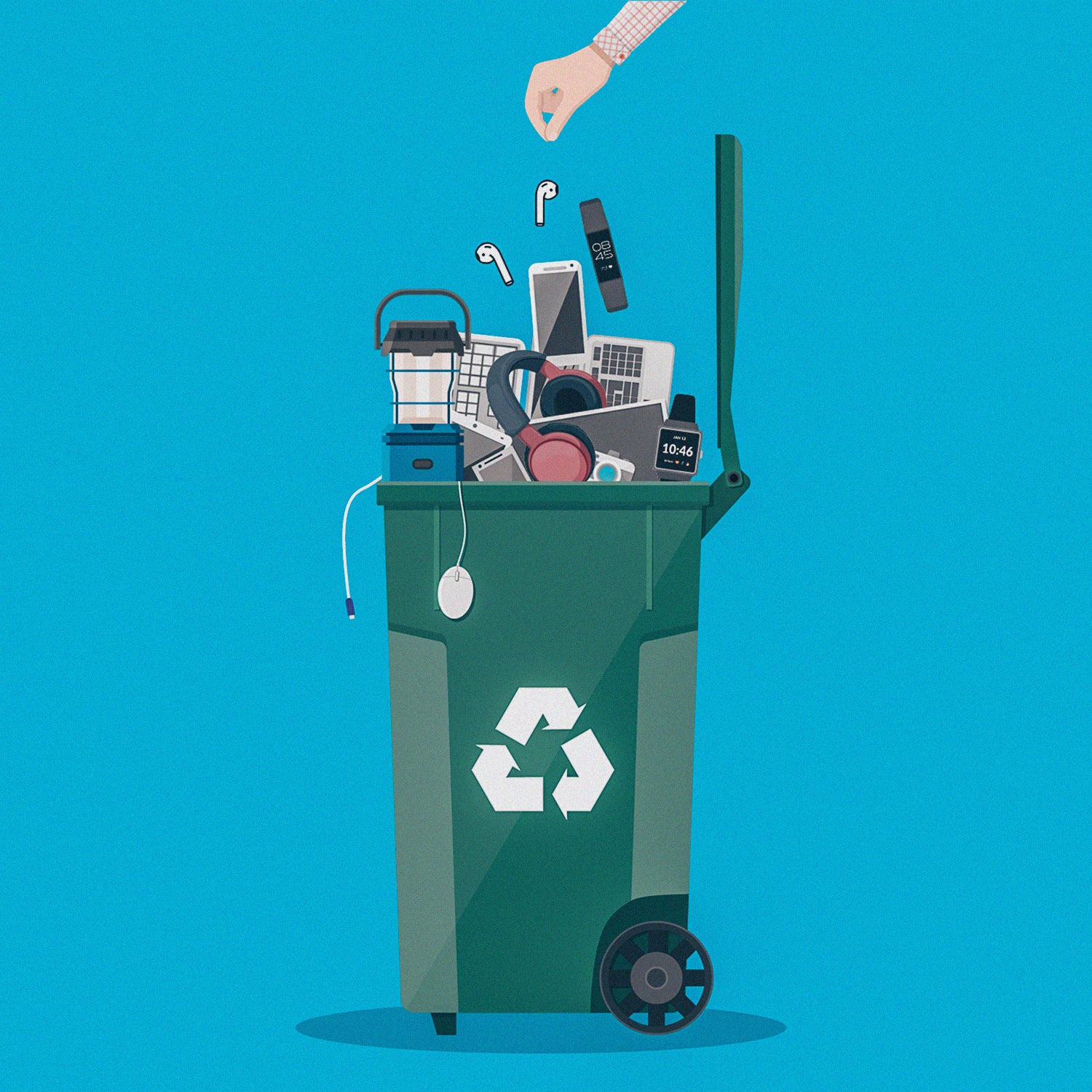R2 Certification Electronic Devices Recycling: Your Warranty for Liable Disposal
Wiki Article
Elevate Your E-Waste Administration With R2 Accreditation: a Comprehensive Review
One secret method to raise e-waste monitoring practices is by obtaining R2 qualification. By exploring the advantages and processes linked with R2 certification, a deeper understanding of exactly how it can change e-waste management methods arises, shedding light on a course towards sustainability and ethical disposal methods.Relevance of E-Waste Management

When e-waste is not taken care of correctly, these poisonous substances can permeate into the ecosystem, triggering injury to wildlife and possibly getting in the food cycle, posturing risks to human wellness. Additionally, the inappropriate disposal of e-waste contributes to contamination and greenhouse gas exhausts, exacerbating climate adjustment and environmental deterioration.

Benefits of R2 Qualification

First of all, R2 certification improves reliability by showcasing a company's dedication to lasting techniques. It assures consumers, partners, and stakeholders that the firm complies with rigid criteria for e-waste management - r2 certification. This reputation can lead to boosted trust fund and enhanced partnerships with clients who focus on ecological responsibility
Secondly, R2 accreditation aids mitigate risks connected with incorrect e-waste disposal. By following the strict guidelines stated by the qualification, organizations can reduce the possibility of information violations, ecological contamination, and lawful consequences. This proactive method safeguards the business's online reputation and minimizes prospective liabilities.
Finally, R2 qualification demonstrates a commitment to environmental stewardship - r2 certification. By properly handling digital waste through accredited processes, organizations add to the conservation of resources, reduction of pollution, and promotion of a circular economic climate. This commitment not only benefits the environment but also straightens with evolving customer assumptions for lasting company methods
R2 Accreditation Process Overview
Having developed the advantages of R2 accreditation in promoting trustworthiness, risk reduction, and ecological stewardship, it is necessary to now describe the detailed procedure associated with acquiring this accreditation. The R2 certification procedure begins with an extensive review of the company's functional policies and treatments to make sure compliance with the R2 criterion. This first assessment is essential in recognizing any kind of gaps that require to be attended to before continuing even more.Once the organization's practices straighten with the R2 conventional requirements, an independent third-party auditor performs an on-site audit to assess the implementation and efficiency of these visit this site right here practices. This audit consists of an extensive review of documents, meetings with staff, and physical evaluations of facilities to confirm conformity.
Adhering to an effective audit, the organization gets a qualification decision based on the auditor's searchings for. If authorized, the company is given R2 certification, showing its dedication to liable e-waste monitoring. It is essential to note that maintaining R2 accreditation needs continuous compliance with the requirement's requirements and routine audits to make certain view it now ongoing adherence to ideal techniques in e-waste recycling and disposal.
Secret Requirements for R2 Conformity
A crucial aspect of attaining R2 compliance is making certain that all electronic waste (e-waste) handling facilities fulfill rigid ecological and security requirements. To adhere to R2 demands, companies have to stick to essential standards that focus on liable e-waste management methods. These requirements include carrying out a recorded environmental, health, and safety and security management system, making certain the secure handling of data-containing devices, and performing extensive downstream due diligence to track the last location of e-waste products.Moreover, R2 compliance requires the correct testing, refurbishment, and recycling of electronic equipment to prolong its useful life and reduce environmental influence. Facilities looking for R2 qualification must likewise prioritize worker health and safety by giving necessary training, personal protective equipment, and a safe workplace. In addition, preserving thorough records of e-waste handling tasks and regularly undergoing audits by certified licensing bodies are crucial parts of demonstrating ongoing official source conformity with R2 standards.
Influences of Lasting E-Waste Practices
The implementation of lasting e-waste methods in accordance with R2 conformity not just ensures ecological and safety and security criteria are fulfilled yet additionally significantly impacts the general lifecycle of electronic items. By sticking to R2 standards, electronic waste monitoring processes become extra effective, minimizing the ecological impact of digital items. Sustainable e-waste techniques promote the appropriate disposal of electronic elements, making sure that hazardous products are handled sensibly and do not finish up polluting the setting.In addition, sustainable e-waste methods can add to job development in the recycling and refurbishment fields, fostering financial growth while advertising ecological duty. Generally, the fostering of lasting e-waste methods under R2 certification serves as a vital action towards accomplishing an extra eco lasting electronics industry.
Verdict
In verdict, applying correct e-waste administration methods is vital for environmental sustainability and source conservation. R2 qualification plays a vital function in making sure accountable handling and disposal of electronic waste. By adhering to the rigorous standards stated by R2 criteria, organizations can not only decrease their ecological effect but additionally add to a much more sustainable future for generations to come.One trick technique to elevate e-waste management techniques is by obtaining R2 accreditation. By exploring the procedures and benefits associated with R2 qualification, a much deeper understanding of how it can change e-waste administration methods arises, shedding light on a course towards sustainability and moral disposal practices.
The R2 accreditation process starts with an extensive review of the company's operational policies and treatments to make sure conformity with the R2 requirement. If approved, the organization is granted R2 accreditation, showing its commitment to liable e-waste administration. On the whole, the adoption of sustainable e-waste practices under R2 accreditation offers as an important action towards attaining a more ecologically lasting electronics market.
Report this wiki page